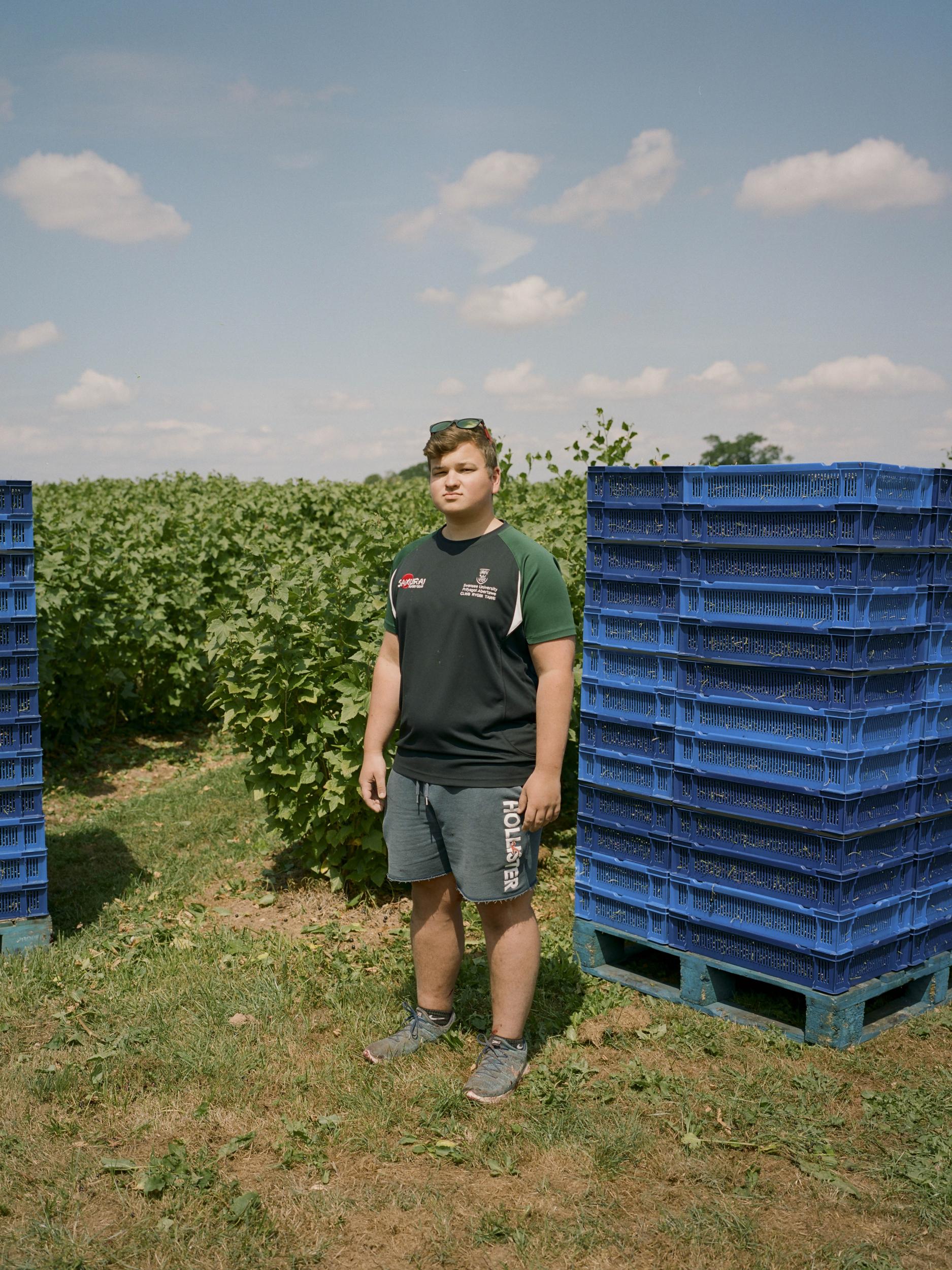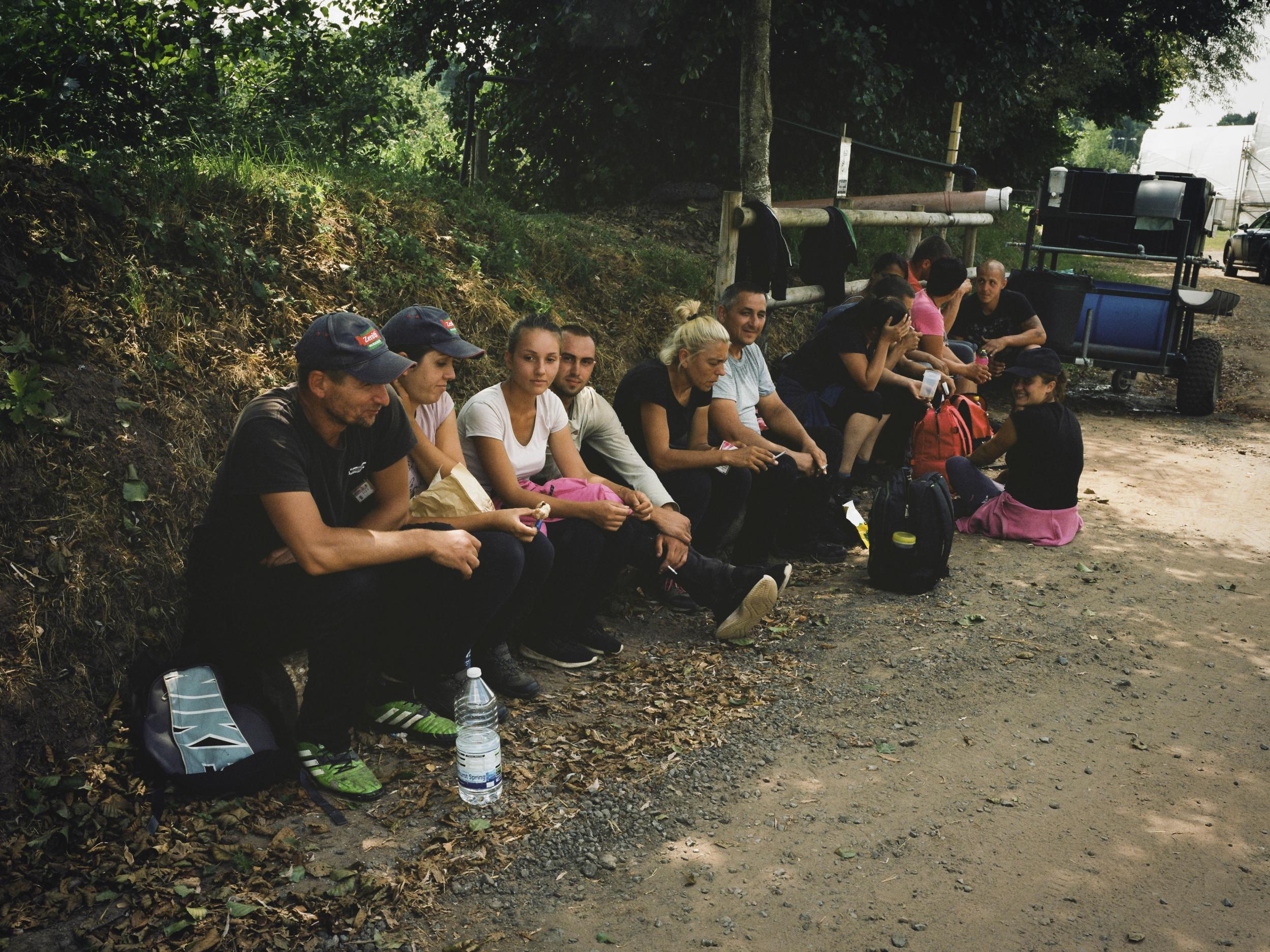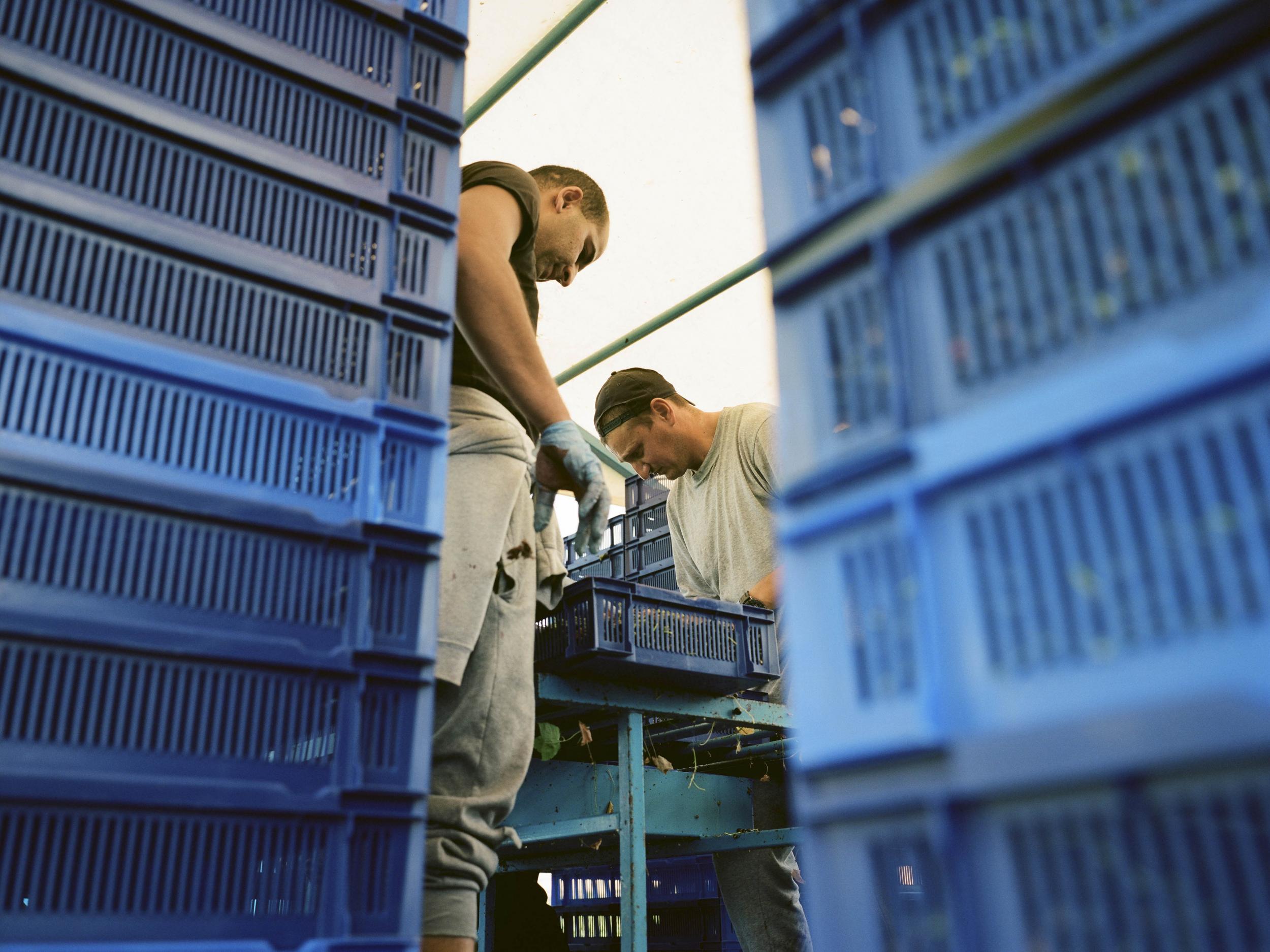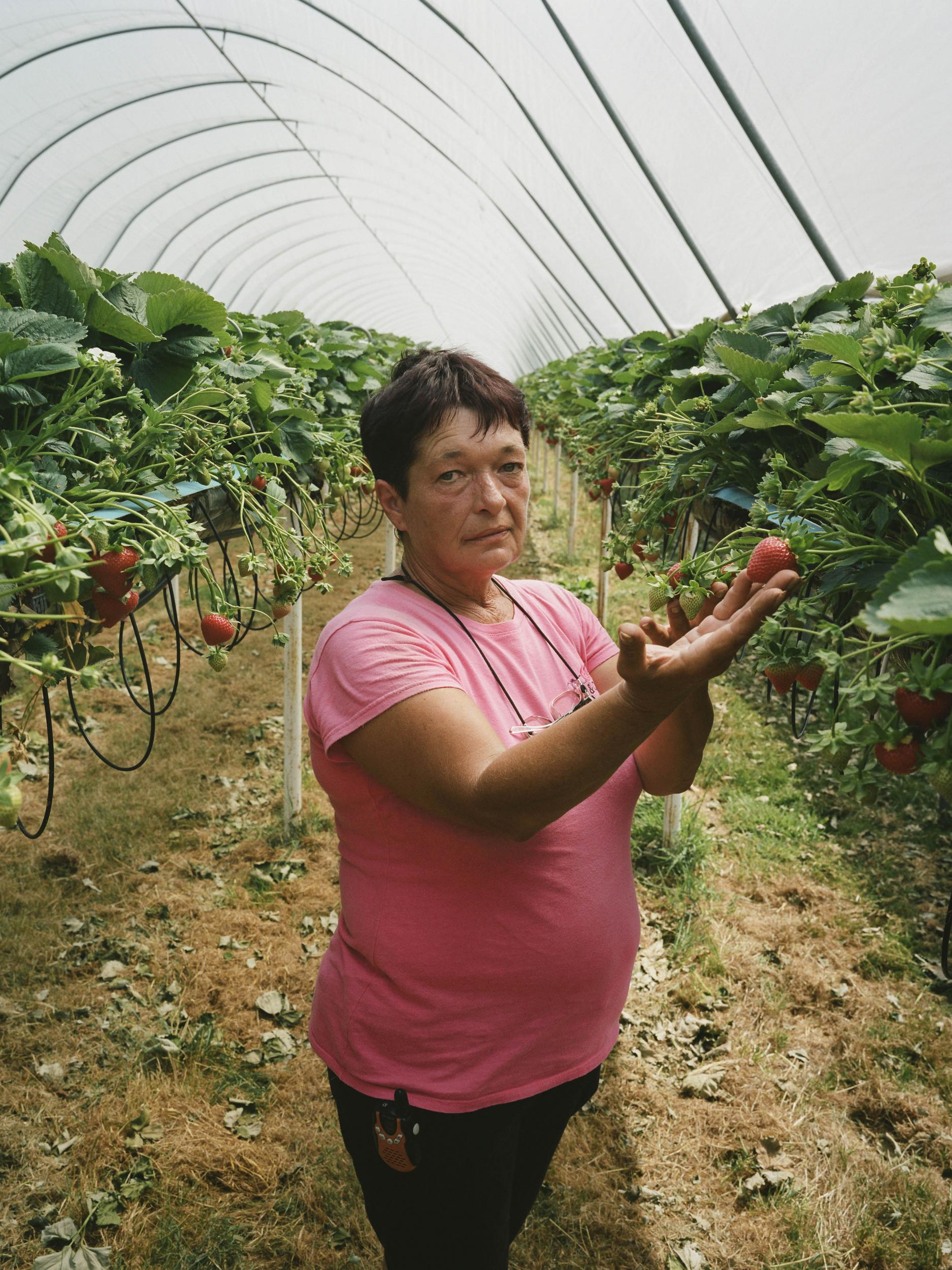Brits don’t want to work on farms – so who will pick fruit after Brexit?
Just one per cent of seasonal farm workers are British. Most currently come from Eastern Europe, but with the end of free movement, British growers could have to look even further for labour
Your support helps us to tell the story
From reproductive rights to climate change to Big Tech, The Independent is on the ground when the story is developing. Whether it's investigating the financials of Elon Musk's pro-Trump PAC or producing our latest documentary, 'The A Word', which shines a light on the American women fighting for reproductive rights, we know how important it is to parse out the facts from the messaging.
At such a critical moment in US history, we need reporters on the ground. Your donation allows us to keep sending journalists to speak to both sides of the story.
The Independent is trusted by Americans across the entire political spectrum. And unlike many other quality news outlets, we choose not to lock Americans out of our reporting and analysis with paywalls. We believe quality journalism should be available to everyone, paid for by those who can afford it.
Your support makes all the difference.After a dozen futile calls to big farms, agricultural lobbyists and labour contractors, we finally found him.
The rarest of the rare, the British berry picker.
Meet Max Hughes, a 20-year-old university student and history major, who is spending his summer harvesting blackcurrants at the Snell family farm in Herefordshire. He rides in the back of a harvester all day, standing beside a Czech migrant and a couple of sun-bronzed Romanian guys, who know very little English.
“No matter, you can't hear a thing they say over the noise,” Hughes says, gesturing towards the wheeled harvester beside him. Its vibrating metal fingers shake the currant bushes and bring the tart berries via conveyor belt to the sorting table, where Hughes and his teammates discard the leaves, twigs, slugs and occasional mouse – whatever you don't want to see in a frozen fruit pack.
Britain today is completely dependent on foreign workers to pick its fruit and vegetables. According to the National Farmers Union, an industry lobbying group, of the 60,000 seasonal workers in the fields last year picking fruit and vegetables, barely one per cent was British. The vast majority come from Eastern Europe, particularly Bulgaria and Romania.
As long as Britain has remained part of the European Union, by treaty its doors have been wide open to the “free movement” of fellow members, including those seasonal farmworkers who come for four or five months, get paid in British pounds and return home for the winter.

But as Britain prepares to leave the EU, bringing the era of free movement to a close, farmers have begun to panic: Who will pick the crops next spring?
Already, labour shortages driven by economic shifts have left produce rotting in the strawberry fields and the high-tech, hydroponic poly-tunnels where top-tier soft fruit is produced. Jacqui Green, chief executive of the Berry Gardens growers cooperative, reports a 30 to 40 per cent shortfall in labour this year.
“It's pretty grim,” Green says. “And it's probably going to get worse before it potentially gets better, post-Brexit.”
During the 2016 Brexit campaign, anxiety over mass migration was top of mind, fuelled in part by claims that, for example, millions of Muslims would arrive as soon as Turkey joined the EU. (Turkey is not in the union and has no prospect of joining in the foreseeable future.)

With Britain's exit from the bloc, Theresa May vows that the country will regain “control of our borders” and dramatically curtail immigration.
Yet critics of Brexit argue that Britain desperately needs foreign workers – not only “the best and brightest” in finance, tech and medicine, who May promises will still be welcome, but those who clean hotel rooms in Brighton, man kitchens in London and harvest tomatoes in Norfolk.
If far fewer workers come from Europe, those jobs will have to be filled by Brits – who don't seem very keen, truth be told – or contracted from Belarus or Nepal or the Philippines.
Britain had such a foreign farmworker scheme in the past, but it was scrapped – and now there are growing calls to restart it.
Stephanie Maurel, the chief executive of Concordia, a recruitment company that supplies workers to about 200 British farms, says they've had virtually zero Brits apply.
“We've had two applications out of 10,000,” she says. “It's statistically quite damning.”
Asked why Brits aren't high on the work, she recited the list: early hours, long days, physical toll, seasonality, lack of affordable transport, “and, quite simply, the farms aren't in places with high levels of unemployment.”
And, unless you're a local, you live in a trailer. Often a nice trailer, with wifi, but still.
Maurel says some Brits work in less taxing farm jobs – as logistics managers or office staff – but even those higher paying, indoor jobs are mostly taken by Eastern Europeans these days.
She says the rare British workers who give the fruit and vegetable harvest a try, “literally don't last a week”.
Hughes and three other university students are the only Brits harvesting berries at the Snell family farm this summer, out of a workforce of 300.
“That's quite something, isn't it?” says Christine Snell who owns the award-winning, environmentally sensitive farm with her husband, Anthony. “We want to get the message across: If we could recruit British workers, we would, but we cannot.”
Snell drove a Washington Post reporter out to see these exotic British berryworkers. They looked hot and dusty but otherwise like healthy contestants on a reality TV show.
For Hughes, the long workday begins at 5am and ends in the late afternoon. He says with overtime and bonuses for quick sorting, he could make more than £3000 for six weeks of six-day work. The worst part, he says, is the dull, repetitive nature of the job. He zones out by listening to music through his ear buds. “It's not a bad summer job,” he says.

But he and his mates think they understand why so few Brits want farm jobs.
“A lot of kids would never do this kind of work,” says Lewis Hiscox, 24, a recent graduate from Harper Adams University, who was working on the blackcurrant harvester, too. “They'd rather give London a try for more money, more fun. Also, there's the snob thing. Farm work is associated with Eastern Europeans,” meaning “work for poor people”.
Many observers have suggested that Brits today are “too lazy” to do the farm work of their yeoman ancestors. Hiscox says that physically, “the British worker could definitely do this job.” He says the work provides an “outdoor life” and decent pay for a young person.
Elliot Packham, 22, who just graduated from Cardiff University, wondered, “If the pay were better, more might try?” He noted that then strawberries would cost more.
“So there's the economics of it,” he says.
Some British commentators have suggested that maybe recently released felons could be employed on the farms – the way German prisoners of war were used during World War II.

Others have wondered if hale and hearty Britons living on social welfare benefits could be prodded to bend their backs to bring in a crop of strawberries. (Though those who receive such benefits may question if the work would be worth the risk of not requalifying for benefits after the season ends.)
Gabriela Yuganaru, a 50-year-old Romanian crew leader on the Snell farm, has been picking for 10 years. “If it was so hard, why would I come back? Your back is sore, OK? A fast picker can make 100 pounds in a day.”
She says, “Maybe the government gives people too much money not to work. I don't know.” She says back home the governments are not so generous. “Better to work,” she says.
Helen Whately, a Conservative party politician who chairs the all-party parliamentary group for fruit and vegetable farmers, says growers would be facing a shortage of labour without Brexit, but the vote to leave the EU has “arguably made the problem a bit more acute.” Already, it has contributed to a weakening of the pound, thus decreasing the financial incentives for foreign workers, at the same time that economies are improving in source countries, such as Romania.
Whately is campaigning for a seasonal agricultural workers scheme that could include countries outside of the EU and would allow pickers to come and work for a defined and limited period of time.
Other than that? Robots? But berries are notoriously difficult to pick mechanically, Snell says.
Adrian Cirstea, the packing house and logistics manager at the Snell farm, who is originally from Romania, imagines that after Brexit, British growers will have look far and wide for labour.
“They'll have to go further east and further south,” he says, to Africa and Asia, to find workers. Meaning that Britain may see the same number of foreign farmworkers, but fewer Bulgarians and more from Eritrea and Moldova. Maybe even Turkey.
© The Washington Post

Join our commenting forum
Join thought-provoking conversations, follow other Independent readers and see their replies
Comments